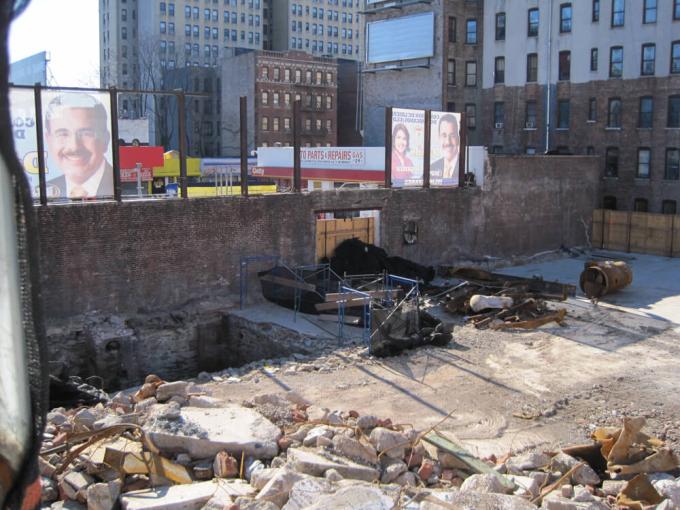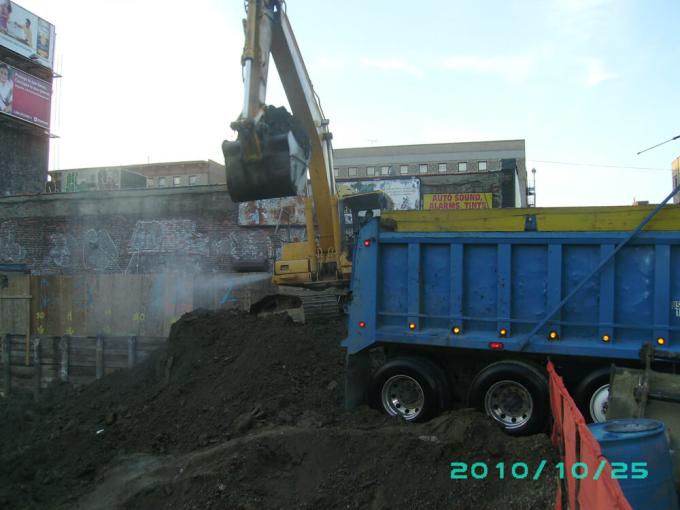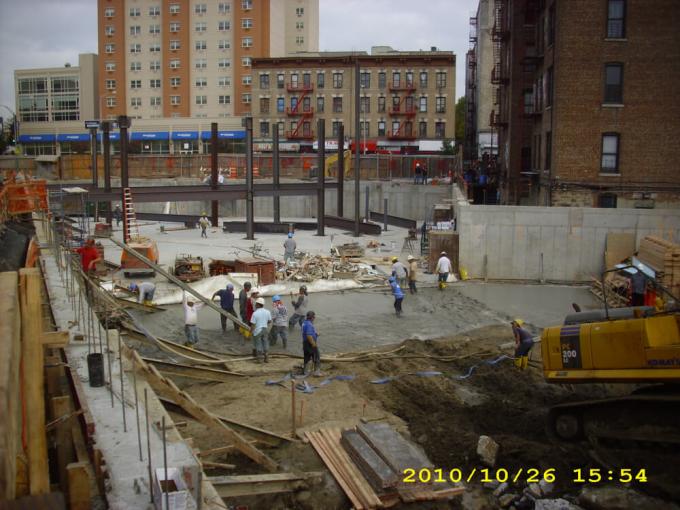

A brownfield cleanup effort in the Sugar Hill neighborhood of Harlem, in New York City.
In 1999, the RBF began contributing to the redevelopment of former industrial sites, or brownfields, in New York City. This work evolved from its earlier engagement in affordable housing development and neighborhood revitalization. At the time, New York remained one of the only states lacking guidelines or incentives for the private voluntary cleanup of contaminated sites (which were located disproportionately in low income areas). Two Pocantico roundtables, co-hosted by the RBF and the Joyce Mertz-Gilmore Foundation, drew business, legal, environmental, and community stakeholders, and led to the cross-sector Brownfields Coalition. The movement gained traction in the 2000s with grants to the Housing Development Corporation, the Pratt Institute Center for Community and Environmental Development, the New York City Environmental Justice Alliance, New York Lawyers for the Public Interest, the Environmental Defense Fund, and community-based groups including Nos Quedamos and Youth Ministries for Peace and Justice in the South Bronx, and El Puente in Williamsburg, Brooklyn. The organizations’ research, advocacy, and policy work resulted in the passage of the 2003 New York State Brownfield Reform Act, hailed as the most comprehensive legislation in the country. In 2004, the RBF received the Council on Foundations’ Paul Ylvisaker Award for Public Engagement for its leadership on brownfields. It continued to work in the field for 14 years, monitoring the state’s progress, disseminating information, and providing technical and financial resources for community groups.
Browse the major events in the Rockefeller Brothers Fund's history


